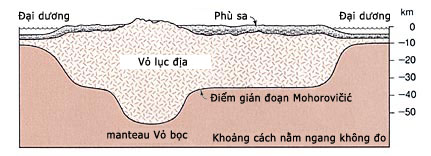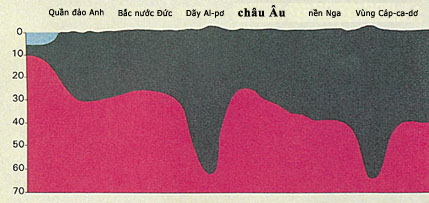الجمعة، 2 ديسمبر 2016
Al-Ma‘ârij
Ptal se tázající na trest, jenž dopadne
[70:2]
na nevěřící: není nikoho, kdo jej odrazí,
[70:3]
vždyť od Boha, Pána stupňů, přichází!
[70:4]
Stoupají k němu po nich andělé i duch v den, jehož délka let padesát tisíc měří.
[70:5]
Neochvějný buď a pěkně jen vytrvej!
[70:6]
Nevěřící daleko vidí ten den,
[70:7]
zatímco my nablízku jej vidíme.
[70:8]
V ten den nebe bude roztavené mosazi podobné
[70:9]
a hory budou jak vločky vlny barevné
[70:10]
a nebude se ptát přítel vřelý na přítele,
[70:11]
ačkoliv budou na dohled. Hříšník zatouží se vykoupit z trestu dne onoho syny vlastními,
[70:12]
i bratrem svým a družkou svou
[70:13]
a klanem vlastním, jenž mu je ochranou,
[70:14]
ba všemi, kdož na zemi jsou, aby se to stalo jeho záchranou.
[70:15]
Však pozor! Toto věru je oheň šlehající,
[70:16]
kůži na lebce spalující,
[70:17]
jenž svolává toho, kdo zády se otočil a odvrátil
[70:18]
a majetek shromažďoval a nakupil.
[70:19]
Člověk byl věru stvořen vrtkavý:
[70:20]
když dotkne se ho neštěstí, je ustrašený,
[70:21]
když dotkne se jej dobré, je odmítavý.
[70:22]
Ne tak ti, kdo se modlí,
[70:23]
kdo v modlitbách jsou vytrvalí,
[70:24]
kdo stanovili podíl z jmění svého
[70:25]
pro žebráka i nešťastníka nemajetného
[70:26]
a kdo den soudný za pravdivý uznávají
[70:27]
a trestu Pána svého se obávají
[70:28]
- vždyť před trestem Pána tvého nikdo jist si není -
[70:29]
a kdo svá pohlaví chrání
[70:30]
jen pro manželky své či otrokyně; a nebudou za to pokáráni -
[70:31]
kdož však více než po tomto touží, to věru jsou přestupníci;
[70:32]
a kdo svěřené opatrují a úmluvy své pevně dodržují
[70:33]
a kdo při svědectvích svých v pravdě stojí
[70:34]
a o modlitby své pilně dbají -
[70:35]
takoví v zahradách rajských se s poctami setkají!
[70:36]
Co děje se s nevěřícími, že k tobě krky natahují
[70:37]
a zprava i zleva se shlukují?
[70:38]
Žádá snad každý z nich, aby uveden byl do zahrad slastí?
[70:39]
Však pozor! Stvořili jsme je věru z toho, co sami dobře znají.
[70:40]
Však pozor! Přísahám při Pánu východů i západů, že vskutku schopni jsme
[70:41]
lepšími, než oni jsou, je vystřídat, a předejít se v tom nedáme.
[70:42]
Nech je být, ať si tlachají a hrají, až se setkají se svým dnem, jenž byl jim přislíben,
[70:43]
se dnem, kdy z hrobů jako by k obětištím chvátali vystoupí se spěchem,
[70:44]
se zrakem zahanbeným, pokryti ponížením. Takový bude den, jenž byl jim přislíben!
At-Târiq
’kq: djrk gw¡ [+kq+nk ds uke ls tks cM+k esgjcku fugk;r jge okyk gS
vkleku vkSj jkr dks vkus okys dh d+le
[86:2]
vkSj rqedks D;k ekywe jkr dks vkus okyk D;k gS
[86:3]
¼og½ pedrk gqvk rkjk gS
[86:4]
¼bl ckr dh d+le½ fd dksbZ Ó[+l ,slk ugha ftl ij fuxsgcku eqd+jZj ugha
[86:5]
rks bUlku dks ns[kuk pkfg, fd og fdl pht+ ls iSnk gqvk gaS
[86:6]
og mNyrs gq, ikuh ¼euh½ ls iSnk gqvk gS
[86:7]
tks ihB vkSj lhus dh gfM~M;ksa ds chp esa ls fudyrk gS
[86:8]
cs’kd [+kqnk mlds nksckjk ¼iSnk½ djus ij t+:j dq+njr j[krk gS
[86:9]
ftl fnu fnyksa ds Hksn tk¡ps tk,¡xs
[86:10]
rks ¼ml fnu½ mldk u dqN t+ksj pysxk vkSj u dksbZ ennxkj gksxk
[86:11]
pDdj ¼[kkus½ okys vkleku dh d+le
[86:12]
vkSj QVus okyh ¼t+ehu dh d+le½
[86:13]
cs’kd ;s d+qjku d+kSys Q+Sly gS
[86:14]
vkSj yx+ks ugha gS
[86:15]
cs’kd ;s dq¶+Q+kj viuh rn~~chj dj jgs gSa
[86:16]
vkSj eSa viuh rn~chj dj jgk gw¡
[86:17]
rks dkfQ+jksa dks eksgyr nks cl mudks FkksM+h lh eksgyr nks lwj, rkfjd+ [+kRe
The Clot
Read: In the name of thy Lord Who createth,
[96:2]
Createth man from a clot.
[96:3]
Read: And thy Lord is the Most Bounteous,
[96:4]
Who teacheth by the pen,
[96:5]
Teacheth man that which he knew not.
[96:6]
Nay, but verily man is rebellious
[96:7]
That he thinketh himself independent!
[96:8]
Lo! unto thy Lord is the return.
[96:9]
Hast thou seen him who dissuadeth
[96:10]
A slave when he prayeth ?
[96:11]
Hast thou seen if he relieth on the guidance (of Allah)
[96:12]
Or enjoineth piety ?
[96:13]
Hast thou seen if he denieth (Allah’s guidance) and is froward ?
[96:14]
Is he then unaware that Allah seeth ?
[96:15]
Nay, but if he cease not We will seize him by the forelock -
[96:16]
The lying, sinful forelock -
[96:17]
Then let him call upon his henchmen!
[96:18]
We will call the guards of hell.
[96:19]
Nay, Obey not thou him. But prostrate thyself, and draw near (unto Allah).
Rivalry in Worldly Increase
1 ) Competition in [worldly] increase diverts you
( 2 ) Until you visit the graveyards.
( 3 ) No! You are going to know.
( 4 ) Then no! You are going to know.
( 5 ) No! If you only knew with knowledge of certainty...
( 6 ) You will surely see the Hellfire.
( 7 ) Then you will surely see it with the eye of certainty.
( 8 ) Then you will surely be asked that Day about pleasure.
B) Kinh Qur'an và các Ngọn Núi:
Còn dưới đây là những gì Kinh Qur'an mô tả về các ngọn núi. Thượng Đế từng nói trong Kinh Qur'an:
Các ngành khoa học nghiên cứu trái đất hiện đại đều chứng minh rằng các ngọn núi có rễ sâu dưới bề mặt của trái đất (xem hình 9) và những rễ này có thể cao gấp vài lần so với phần nâng lên của núi trên mặt đất.2 Do đó, từ duy nhất phù hợp nhất để mô tả các ngọn núi dựa trên thông tin này là từ ‘cọc,’ bởi vì phần lớn thân cọc được chôn dưới lòng đất. Lịch sử khoa học cho chúng ta biết rằng người ta chỉ biết đến lý thuyết về việc các ngọn núi có rễ sâu trong lòng đất vào nửa cuối thế kỷ XIX3
Các ngọn núi cũng đóng vai trò rất quan trọng trong việc giữ cho vỏ trái đất ổn định4 Các ngọn núi ngăn không cho trái đất bị rung lắc. Thượng Đế nói trong Kinh Qur'an:
Tương tự, lý thuyết hiện đại về kiến tạo đá cho rằng các ngọn núi hoạt động giống như những vật giữ cho trái đất ổn định. Kiến thức này về vai trò của các ngọn núi trong việc giữ cho trái đất ổn định mới chỉ được biết đến trong khuôn khổ kiến tạo đá từ nửa cuối thập kỷ 19605
Liệu có ai sống dưới thời của Thiên Sứ Muhammad
_____________________________ Liệu có ai hình dung được rằng một ngọn núi to chắc chắn mà anh hay chị ta nhìn thấy trước mặt mình thực sự nằm sâu trong lòng đất và có rễ giống như các nhà khoa học đã xác nhận? Một số lượng lớn sách địa chất học, khi đề cập đến các ngọn núi, chỉ mô tả phần nổi trên mặt đất. Đó là do tác giả của những quyển sách này không phải là những chuyên gia về địa chất. Tuy nhiên, địa chất học hiện đại đã xác nhận sự thực của những vần thơ trong Kinh Qur'an. Liệu có ai hình dung được rằng một ngọn núi to chắc chắn mà anh hay chị ta nhìn thấy trước mặt mình thực sự nằm sâu trong lòng đất và có rễ giống như các nhà khoa học đã xác nhận? Một số lượng lớn sách địa chất học, khi đề cập đến các ngọn núi, chỉ mô tả phần nổi trên mặt đất. Đó là do tác giả của những quyển sách này không phải là những chuyên gia về địa chất. Tuy nhiên, địa chất học hiện đại đã xác nhận sự thực của những vần thơ trong Kinh Qur'an.
Chú thích:
(1) Earth [Trái đất], Press và Siever, trang 435. Cũng như xem Khoa học về Trái đất, Tarbuck và Lutgens, trang 157.
(2) The Geological Concept of Mountains in the Quran [Khái niệm Địa chất về các Ngọn núi trong Kinh Qur'an], El-Naggar, trang 5.
(3) The Geological Concept of Mountains in the Quran [Khái niệm Địa chất về các Ngọn núi trong Kinh Qur'an], trang 5.
(4) The Geological Concept of Mountains in the Quran [Khái niệm Địa chất về các Ngọn núi trong Kinh Qur'an], các trang 44-45.
(5) The Geological Concept of Mountains in the Quran [Khái niệm Địa chất về các Ngọn núi trong Kinh Qur'an], trang 5
Trang chủ: www.islam-guide.com
|
Préface
Ce site web est un guide abrégé pour comprendre l'islam. Il est constitué de trois chapitres.

Le premier chapitre, Quelques preuves que l'islam est une religion véridique, répond à d'importantes questions que se posent certaines personnes:
n Le Coran est-il vraiment la parole de Dieu, révélée par Lui?
n Mohammed
n L'islam est-il vraiment une religion provenant de Dieu?
Dans ce chapitre, nous vous présentons six genres de preuves:
1) Les miracles scientifiques du Coran: Cette section traite (avec des illustrations) de certains faits scientifiques récemment découverts dont il est fait mention dans le Coran, lequel fut révélé il y a plus de quatorze siècles.
2) Le grand défi de produire un seul chapitre semblable aux chapitres du Coran: Dans le Coran, Dieu a lancé un défi à tous les êtres humains: celui de produire ne serait-ce qu'un seul chapitre semblable aux chapitres du Coran. Depuis que le Coran a été révélé, il y a quatorze siècles, jusqu'à nos jours, personne n'a été en mesure de relever ce défi en dépit du fait que le plus court chapitre du Coran (chapitre 108) ne contient que dix mots.
3) Les prophéties bibliques concernant la venue de Mohammed
4) Les versets du Coran qui font mention d'événements à venir qui se sont réalisés par la suite: Le Coran fait mention d'événements à venir qui se sont réalisés, comme la victoire des Romains sur les Perses.
5) Les miracles accomplis par le prophète Mohammed
6) Le mode de vie simple du prophète Mohammed
De ces six genres de preuves, nous pouvons conclure que:
n Le Coran est véritablement la parole de Dieu, révélée par Lui.
n Mohammed
n L'islam est vraiment une religion provenant de Dieu.
Pour savoir si une religion est véridique ou fausse, nous ne devrions pas nous fier à nos émotions, nos sentiments ou nos traditions. Nous devrions plutôt nous baser sur notre raison et notre intellect. Quand Dieu a envoyé Ses prophètes, Il les a envoyés avec des miracles et des signes destinés à prouver qu'ils étaient réellement des prophètes envoyés par Dieu et que la religion qu'ils prêchaient était véridique.
Le deuxième chapitre, Quelques bienfaits de l'islam, mentionne quelques-uns des bienfaits que l'islam apporte aux individus, tels que:
1) La voie vers le Paradis éternel
2) Une sauvegarde contre le feu de l'Enfer
3) Le véritable bonheur et la paix intérieure
4) Le pardon de tous les péchés commis dans le passé.
Le troisième chapitre, Informations générales sur l'islam, fournit des informations générales sur l'islam, clarifie certaines idées reçues, et répond à des questions fréquemment posées, comme:
n Que dit l'islam sur le terrorisme?
n Quel est le statut de la femme en islam?
_____________________________
Note:
(1) Ces mots en arabe
Page d'accueil: www.islam-guide.com
|
Come to Prayer! Come to Success!
Egypt Days وReginald ThaRegime Thomas.
Come to Prayer! Come to Success!
Prayer helps us to put into words exactly what is troubling us. It is almost impossible to deal with a problem while it remains vague and nebulous.
Prayer helps us to put into words exactly what is troubling us. It is almost impossible to deal with a problem while it remains vague and nebulous.
In a sacred hadith God says:
"I have divided prayer between Myself and My servant into two halves, and My servant shall have what he has asked for. When the servant says, {All the praises and thanks be to Allah, the Lord of existence}, Allah says, ‘My servant has praised Me.’ When he says, {the All-Merciful, the Ever-Merciful}, Allah says, ‘My servant has extolled Me.’ When he says, {The Owner (Master) of the Day of Judgment}, Allah says, ‘My servant has glorified Me.’ When he says, {You (Alone) we worship, and You (Alone) we ask for help (for each and everything)}, Allah says, ‘This is between Me and My servant, and My servant shall have what he has asked for.’ When he says, {Guide us to the Straight Path, the Path of those on whom You have bestowed Your Grace, not the path of those who have incurred Your Anger, nor of those who have gone astray.}, Allah says, ‘This is for My servant, and My servant shall have what he has asked for.’" (Muslim)
Abu Sa‘id Al-Khudri narrated that he heard Prophet Muhammad saying:
"The five daily prayers provide expiation for whatever occurs in the time between them. Imagine a man has work and there are five rivers between his house and his workplace. He would go to his workplace and work as much as Allah willed, becoming dirty or sweaty. Then, whenever he came to a river, he would bathe, what would remain of his dirt? It is like this with prayer; whenever he commits a sin, he supplicates and seeks forgiveness, so he is forgiven for whatever has preceded it." (Al-Bukhari and Muslim)

My Mercy overcomes My Anger
The Deen Show
Narrated Abu Huraira (May Allah be Pleased with him): The Prophet (Peace and Blessings of Allah be upon him) said,
"When Allah created the Creation, He wrote in His Book--and He wrote (that) about Himself, and it is placed with Him on the Throne--'Verily My Mercy overcomes My Anger.'"
(Sahih al Bukhari, Chapter# 93 ('ONENESS, UNIQUENESS OF ALLAH (TAWHEED)', Hadith # 501).
I think all have been waken up :)
قناة الهدى مع Nura Muhammad Fagge و10 آخرين.
I think all have been waken up  :)...Any way this greeting is for everyone..whom have waken up and whom are still sleebing:)
:)...Any way this greeting is for everyone..whom have waken up and whom are still sleebing:)

We Raise our Hand to You
Islamic knowledge مع Shakib Castle و8 آخرين.
We Raise our Hand to You, We ask You Oh Allah , Our Rab Give us Success in this world and in the Hereafter and Save us From the Torment of Hellfire.
Please Comment "Ameen" and Please "Share".
Please Comment "Ameen" and Please "Share".

Never let your Salah be a mindless routin
Dr. Bilal Philips مع LilCharlie Mack و11 آخرين.
Never let your Salah be a mindless routine. Pray to reflect, to review and more importantly to remember.
الاشتراك في:
التعليقات (Atom)




